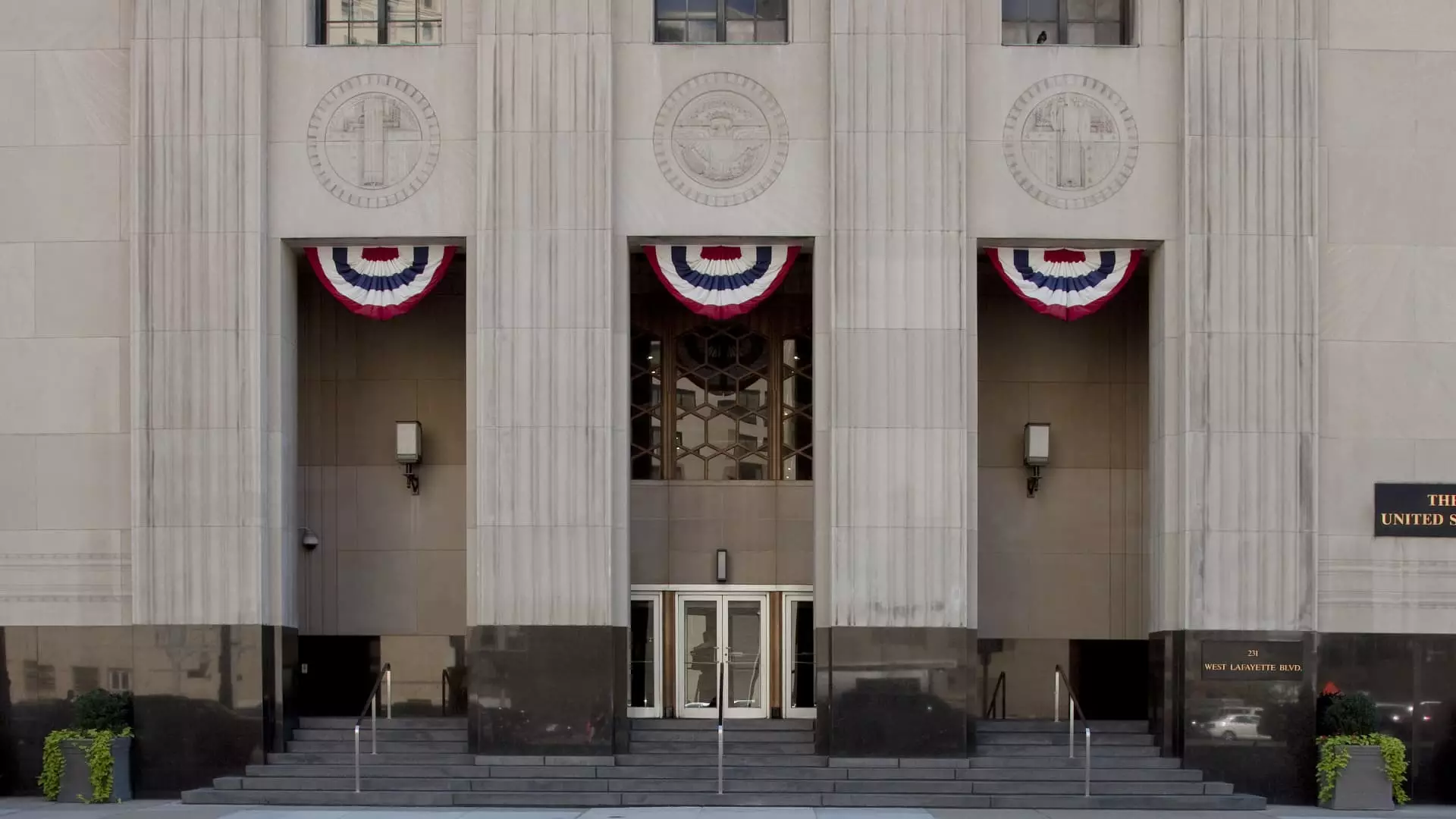In a narrative that breathes unease into the sanctity of academic research, a shocking incident involving a researcher and her boyfriend from China raises pertinent questions about ethics, national security, and the dire implications of unregulated scientific exploration. Yunqing Jian, a postdoctoral fellow at the University of Michigan, alongside her boyfriend Zunyong Liu, has been implicated in the smuggling of a biological pathogen with potential catastrophic repercussions for agriculture. Such occurrences are not mere unfortunate anomalies; they signify a burgeoning menace as academia intersects with international intrigue—a twisted tale embedding itself in a complex web of ambition, complicity, and blatant disregard for ethical boundaries.
A Deep Dive into the Charges
The charges against Jian and Liu are severe, encompassing conspiracy to defraud the United States, smuggling, and making false statements to federal investigators. The particulars of the investigation paint a troubling picture: Liu was apprehended at the Detroit Metropolitan Airport with a dangerous fungus, Fusarium graminearum, secreted away in his backpack. Initially claiming ignorance, his story rapidly imploded as he later admitted to intentionally hiding the pathogen—an acknowledgement that reflects a calculated choice rather than a naive miscalculation. The fact that he hoped to cultivate this pathogen within a U.S. laboratory only amplifies the risks he posed; this unholy ambition to pursue research at any cost raises serious alarm over individual motivations eclipsing ethical conduct.
Deconstructing the Scientific Community’s Response
The University of Michigan’s swift condemnation of the actions of its postdoctoral fellow is not just a passive response to an isolated incident. It is a reflection of the institution grappling with severe implications that extend beyond its precincts. This case challenges the very essence of academic integrity, urging a reevaluation of how research is conducted and monitored. While the university states it has received no funding from the Chinese government in connection to the accused, one cannot help but question the integrity of international partnerships and the need for stringent vetting processes. The university’s sharp resolve is commendable, yet is it sufficient in light of the growing trend where researchers risk ethical lines in the name of scientific progress?
National Security vs. Intellectual Curiosity
This incident forces us to confront the delicate balance between the pursuit of knowledge and the necessity of safeguarding national interests. The allegations reveal not only an individual’s moral failure but also a potential systemic flaw—what existing structures allowed these individuals to believe they could import hazardous materials without consequence? The chilling assertion from the FBI Counterintelligence Division underscores the economic and health risks manifested by pathogens like Fusarium graminearum. The potential devastation it causes to crops resonates far beyond the laboratory walls, posing a glaring threat to agriculture, economies, and food security.
The Implications of Academic Laxity
The emergence of scandals like this should raise red flags within the academic community, urging institutions to adopt more rigorous oversight mechanisms. The ease with which Liu was able to attempt smuggling such a dangerous organism indicates a troubling laxer approach to biosecurity in academic settings. Institutions of higher learning must now endure scrutiny, not only for the quality of education they impart but also for the ethical standards they uphold. The academic community must prioritize establishing clear parameters and adhering to them; failure to do so risks the degradation of credibility and safety.
A Call to Action
As members of the academic and broader societal community, we must grapple with the uncomfortable truths presented by this case. It serves as an urgent call to action: we cannot afford to let curiosity override caution. The hubris displayed by Jian and Liu exemplifies a critical lapse in judgment—a perilous presumption that scientific inquiry is immune to ethical rigor. While knowledge itself is a powerful tool, wielding it without respect for its potential ramifications can lead to irrevocable harm. The repercussions of such actions extend beyond individual accountability; they immerse us in an ethical quagmire that demands immediate attention and action from institutions charged with safeguarding both knowledge and public welfare.

Leave a Reply